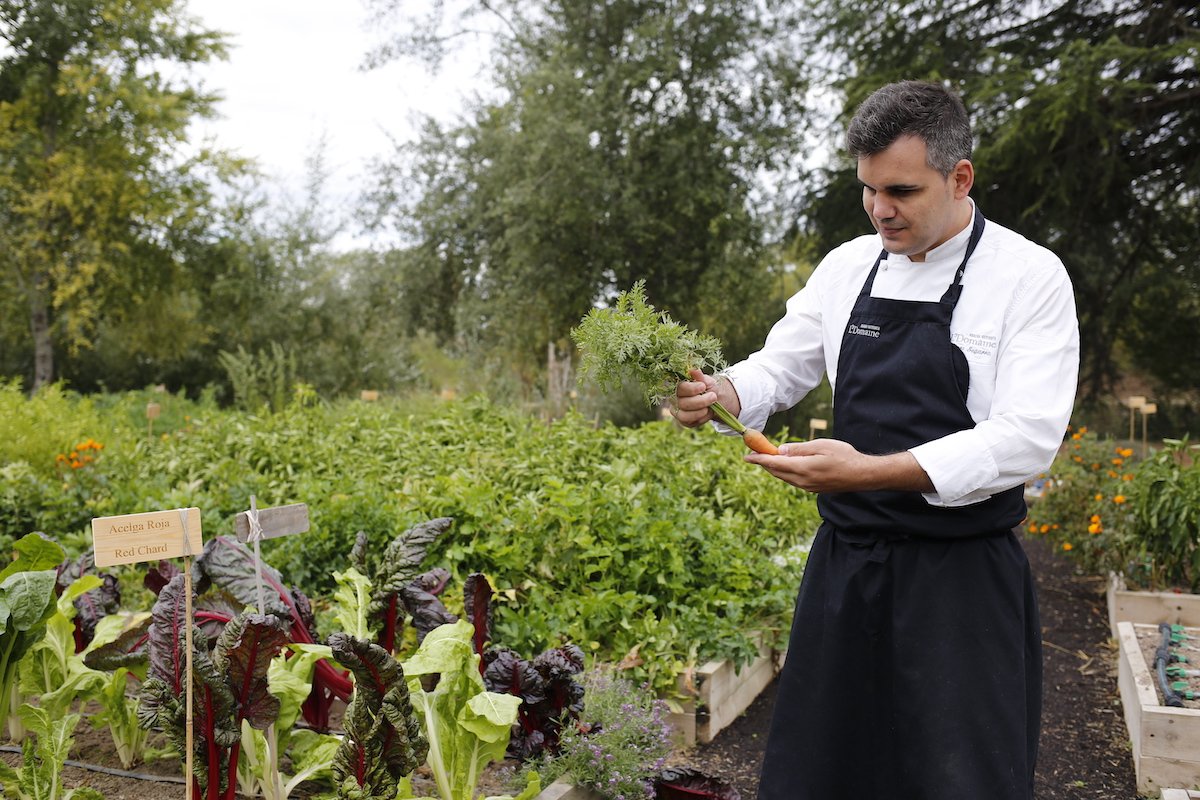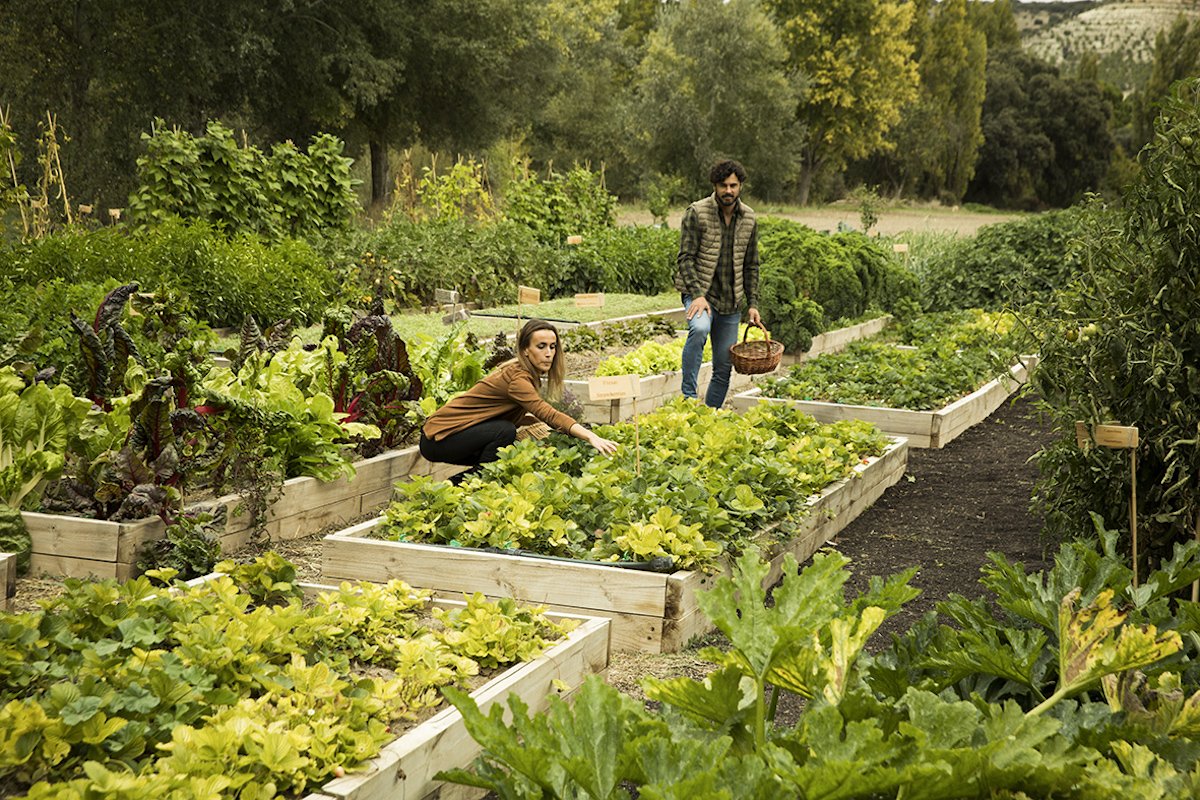The Monks’ Garden: A Bridge between Earthly and Divine Beauty
Abadía Retuerta is the custodian of history, a place where its monastery — which has stood in silence and constant majesty over the last millennium — meets nature itself, which is ever turning and changing all around it.
The monks who lived on this ancient estate would toil the land, grow their own vegetables and tend to the beautiful gardens here on the banks of the River Duero. As part of our commitment to this landscape, we decided to revive the estate’s gardens: unlike the abbey buildings, the gardens are changeable, ephemeral constructions that serve as a bridge between earthly and divine beauty.
We have carefully studied the surrounding lands, in order to conserve and leverage the available natural resources. The plan arose to create a sustainable garden, spanning 14,000 m2; it will be home to native species as well as others that are well-suited to the region’s particular climate and soils.
The idea was to free up, rewild and reinvigorate the nature in the garden, so that it becomes a place for people to reconnect with the surroundings and feel at one with the natural world. As Heraclitus put it, “the only constant in life is change”.
The abbey’s gardens are intended to be dynamic and changing spaces, where the seasons of the year really make a mark, thus helping us combine different attractive plant species the whole year round. These gardens are subject to the passage of time, and are in constant evolution: they have been designed with a long-term vision, and they will further flourish over the years, bedding in as beautiful places to be lived and enjoyed.
The gardens will feature certain plants that do not require much attention, and which can live on very little water (the water they do need will be sourced from the hotel; at present, this water is poured into the Duero, so this new procedure will close Abadía Retuerta LeDomaine’s cycle of water reuse). These plants are also resistant to pests, and reproduce on their own. The aim is to create sustainable gardens that respect nature’s cycles and the biodiversity of the area.
The original plan was to start work on this space last March, but the lack of rain meant the project had to be pushed back. The higher rainfall in October and November meant that work could finally begin, and the planting will take place in December: over 10,700 plants in the rewilded garden, and 10,500 plants in the monks’ garden. The work is due to last six months, after which the garden will be thriving in all its natural glory.
The design of the gardens, by international landscape architect Álvaro Sampedro, is a faithful reflection of the estate’s ground plan from 1887. It will have a geometric design in the area closest to the abbey, as well as another more natural design in the island formed by the River Duero and the channel.
Our guests will discover more and more about these gardens as they walk around the estate, as these spaces cannot be appreciated from just a single viewpoint. The more the gardens are explored, the more they will reveal: they are places that reward discovery, places to feel true peace. A powerful metaphor for paradise and divine love.
This is yet another project within Abadía Retuerta’s strong commitment to recovering its founding values. The abbey itself was revived first, then the vineyards, and later the sustainable vegetable garden. Now, work is underway to reinvigorate the gardens.
The next step in taking the abbey back to its roots will be to convert the farmlands into orchards, as well as bocages and native woodlands. This will be done with a profound respect for Abadía Retuerta’s integrity and history.
Contact
Laura Caurín
Communication Coordinator
Abadía Retuerta
Sardón de Duero - Valladolid - Spain
T.+34 914 321 642
M.+34 663 212 202
E: laura.caurin@abadia-retuerta.es
www.abadia-retuerta.com
Helena Chang
Public Relations Manager
Green Globe Certification
1223 Wilshire Blvd. Suite 925
Santa Monica, CA 90403 / U.S.A.
hchang@greenglobe.com
www.greenglobe.com




